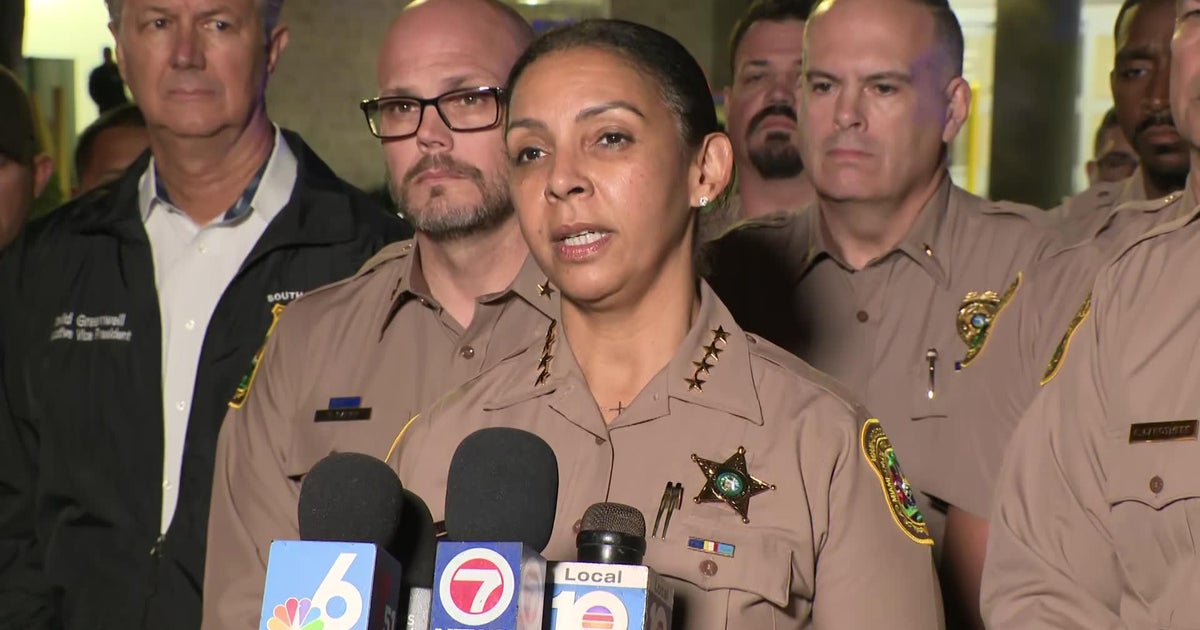Holiday season brings uptick in phone, internet scams
MIAMI - As the holiday season kicks into high gear, law enforcement agencies and consumer protection officials are issuing warnings about a sharp increase in scams targeting shoppers and donors.
From phishing emails to bogus charities, criminals leverage the festive rush to steal money and personal information.
The FBI Miami Field Office highlights two of the most prevalent scams: non-delivery and non-payment crimes. Last holiday season, the FBI's Internet Crime Complaint Center received over 13,000 complaints related to non-delivery goods, resulting in $92 million in reported losses.
"The FBI urges consumers to be vigilant and protect themselves against criminals looking to make a quick buck this holiday season," said Jeffrey B. Veltri, Special Agent in Charge of the FBI Miami Field Office. "If it seems 'too good to be true,' it probably is."
CBS News Miami spoke with two women who said they had been victimized in past scams and they wanted to speak out in order to raise awareness and help people.
Rhonda Royle of Okeechobee said, "They called me and said if you need a personal loan, we can help you and you need to get gift cards through Apple Pay and through your VISA card and because I was young and not thinking, I thought I should do this as a way to get money. They were posing as some sort of personal loan company. I spent a few hundred dollars and never got any money. It was a scam."
"I ended up going down to the police station and filing a report and giving them their name but it was a cyber scam and I never found out who they were. I was mad because I did not have that money to lose."
"Be diligent about the people who call you. Do your research on their name and business. Find out who you are dealing with," she warned.
Karen Fowler of Waycross, Georgia said, "I was contacted by this company who told me you need to go get a money order and we will give you back the amount of the money order plus some. I spent $1500 and they told me they would give me back between $2000 and $5000. I never got any money."
"It turned out it was an overseas thing but thank God my bank was awesome. They were able to stop payment on the money order. But still, I was very upset. I cried for a number of days. I was young as well and when you are young, you don't think people are dishonest. Now, all I can say is that if it is too good to be true, just walk away. Do your research because if you want something they should be sending money to you not taking money from you. Be sure you keep your information safe and be careful what you give away on the phone."
James Griffen of Miami Gardens said he has always been very careful.
Common Holiday Scams
Law enforcement warns of several schemes, including:
• Online shopping scams: Phishing emails or fake advertisements offer deals to lure consumers into providing payment details.
• Social media scams: Fraudsters use fake giveaways or surveys to steal personal information.
• Gift card scams: Victims are tricked into purchasing gift cards after receiving spoofed emails, calls, or texts.
• Charity scams: Criminals pose as fake charities to collect donations.
• Work-from-home scams: False job offers promise convenience but aim to exploit personal details or funds.
In Florida, the Monroe County Sheriff's Office has also reported scams where criminals impersonate law enforcement officers, threatening arrest over missed jury duty or fake criminal cases. Victims are asked to pay in cash, gift cards, or Bitcoin to resolve the matter.
"Law enforcement will never call to demand payment for missed jury duty or any other legal issue," the sheriff's office emphasized.
Protect Yourself
Officials offer the following tips to safeguard against holiday scams:
1. Verify the source: Research retailers, charities and individuals requesting money.
2. Be cautious with payments: Avoid gift card or cryptocurrency payments, which are difficult to trace. Credit cards offer stronger fraud protections.
3. Scrutinize deals: Unusually low prices or unfamiliar merchants may indicate counterfeit or stolen goods.
4. Practice cybersecurity hygiene: Avoid clicking on suspicious links in emails or advertisements.
5. Secure deliveries: Use package lockers or other secure delivery options to prevent porch piracy.
The Florida Attorney General's Office has released the 2024 Holiday Consumer Protection Guide, which offers further advice for avoiding fraud, donating safely, and shopping securely.
Reporting Scams
If you believe you are a victim of a scam, the FBI advises contacting your financial institution and filing a complaint at www.IC3.gov. Local law enforcement can also provide assistance.



